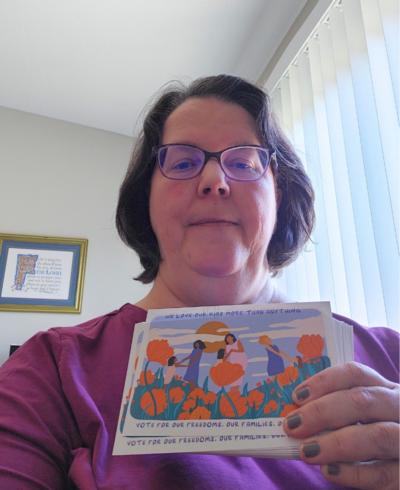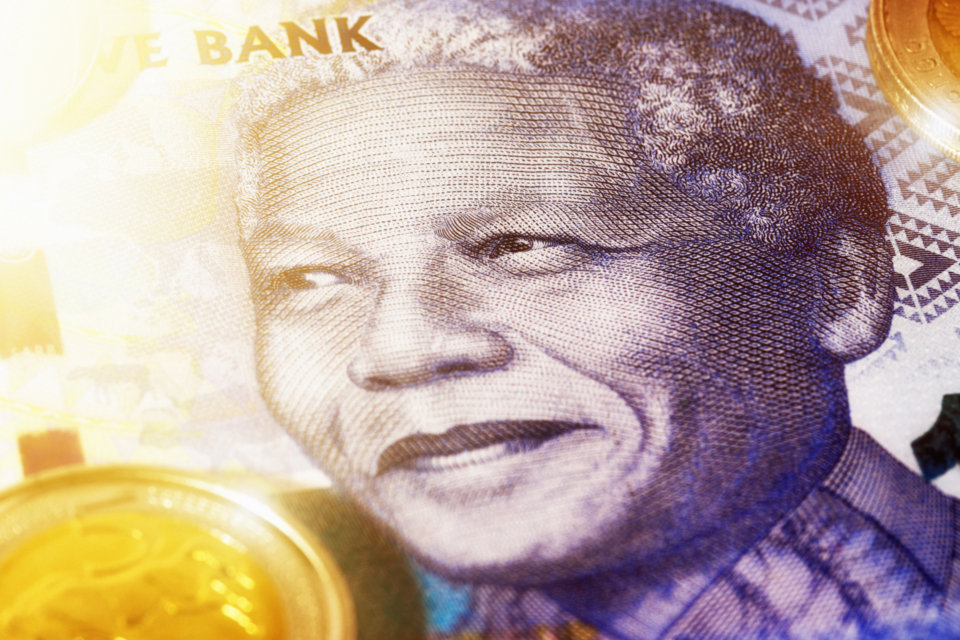Reflecting on the end of apartheid in South Africa, Rev. Melanie Carey expresses gratitude for the right to vote and how voting is part of her faith witness as a United Methodist.
REV. MELANIE CAREY
East Lansing: University UMC
In 1991, I graduated with a Master of Divinity from Union Theological Seminary in New York City. Several of my classmates were black South African religious leaders living in exile in the United States during apartheid. Apartheid is a word in the Afrikaans language meaning “apartness.” The apartheid system in South Africa was put into place in 1948 by the all-white government, and it continued until 1994. During those 46 years, the South African government dictated that non-white South Africans (a majority of the population) were required to live in separate areas from whites and use separate public facilities. Non-white South Africans were also denied many civil and political rights, including being denied the right to vote.
Nelson Mandela, a black South African leader, was imprisoned on Robben Island for 27 years for speaking out and working to organize changes against the evils of apartheid. In 1990, after Mandela was freed, he came to New York City to speak at the United Nations, and his motorcade passed by our seminary. Thousands of people stood on the sidewalks along Broadway and cheered for him. As his motorcade passed by the seminary, the South African students sang powerful freedom songs — something I will never forget.

I learned so much from these incredible leaders, and I remember how excited they were to vote in 1994 for the first time in their lives! These same leaders, now back in South Africa, shared stories about how people helped each other get to the polls to vote — even carrying those who were unable to walk themselves for miles just so they could cast a vote and make their voices, which had been silenced for so long, heard. I still get emotional thinking about this.
To me, it was a witness of faith and the importance of voting. As I cast my ballot every election, I think of my seminary colleagues, their brave witness, and all they endured. My husband, Jon, and I have a framed copy of the South African ballot from the 1994 election when Nelson Mandela became president. It reminds us not to take voting for granted.
In 2016, voter turnout in the United States was just 61.4%, meaning that just over half of those eligible to vote in our nation do so. And in an off-year election, the percentage of voter turnout is even lower. Countries such as Sweden, where they have a compulsory voting law, have over 80% voter turnout, and South Korea, which doesn’t have a mandatory voting law, has over 70% voter turnout. It is hard to explain to my religious colleagues in South Africa why vast numbers of us in the United States decide not to vote and participate in making our voices heard.
“Do all the good you can, by all the means you can, in all the ways you can, in all the places you can, at all the times you can, to all the people you can, as long as ever you can.” This well-known quote attributed to John Wesley compels me to vote and help those eligible register to vote. I consider voting a part of my faith witness and one of the ways I personally can do all the good I can, by all the means I can, to all the people I can.
When we join The United Methodist Church, our membership vows include our prayers, presence, gifts, service, and witness. I consider voting one of the ways I witness to my faith. I also consider voting a way to model the importance of participating in our democracy and helping design a society that cares for those in need. When our young adult children, Nick and Grace, were younger, they came with my husband and me when we voted. That is another important aspect of our witness — modeling what public faith looks like for future generations. Now that I am a grandparent, I feel even more compelled to vote because I want to give our grandchildren, Ellie and Jack, and all the children on this planet the best world possible.
Last Updated on October 24, 2024

